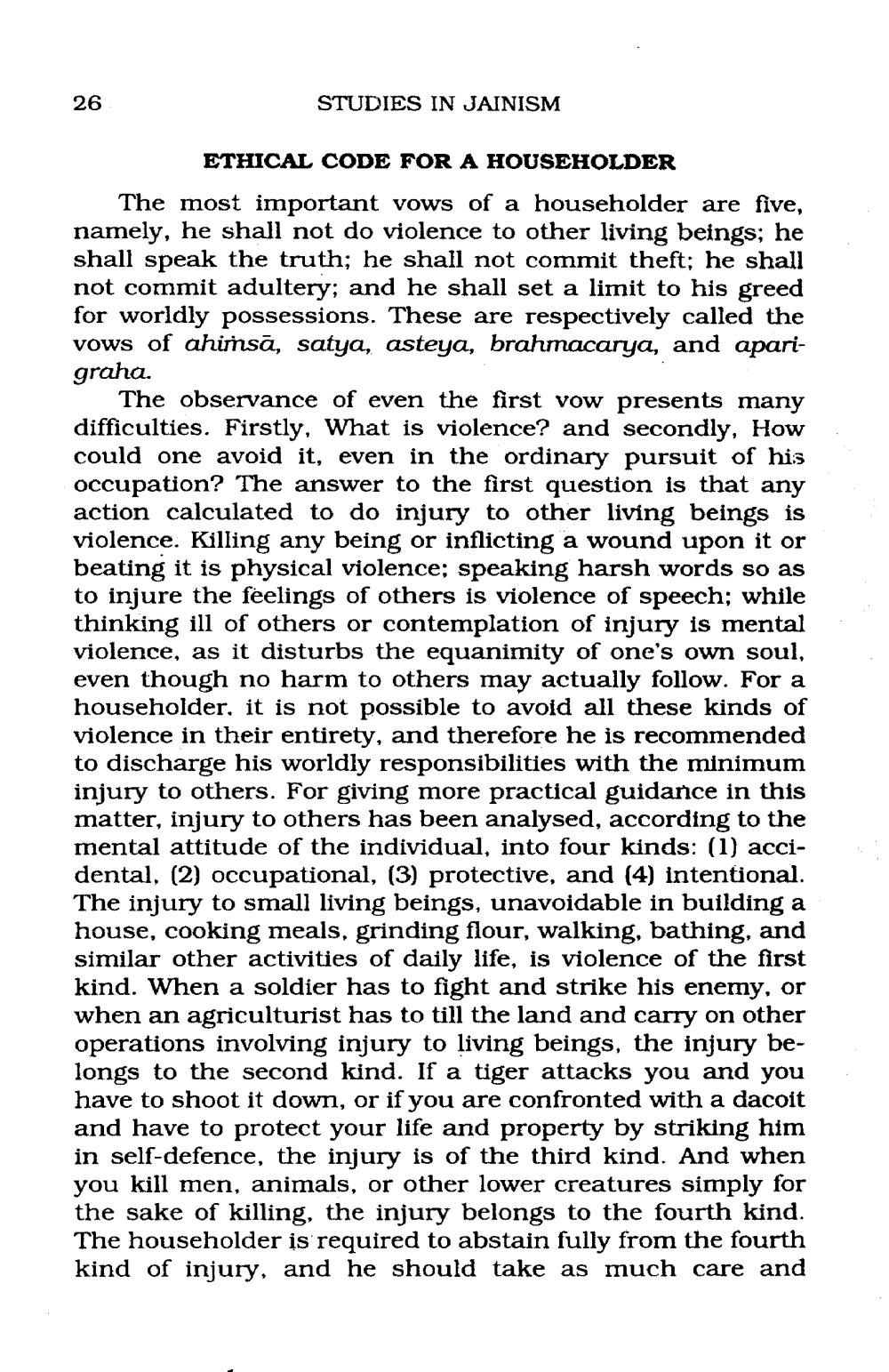________________
26
STUDIES IN JAINISM
ETHICAL CODE FOR A HOUSEHOLDER The most important vows of a householder are five, namely, he shall not do violence to other living beings; he shall speak the truth; he shall not commit theft; he shall not commit adultery; and he shall set a limit to his greed for worldly possessions. These are respectively called the vows of ahinsā, satya, asteya, brahmacarya, and aparigraha.
The observance of even the first vow presents many difficulties. Firstly, What is violence? and secondly, How could one avoid it, even in the ordinary pursuit of his occupation? The answer to the first question is that any action calculated to do injury to other living beings is violence. Killing any being or inflicting a wound upon it or beating it is physical violence; speaking harsh words so as to injure the feelings of others is violence of speech; while thinking ill of others or contemplation of injury is mental violence, as it disturbs the equanimity of one's own soul, even though no harm to others may actually follow. For a householder, it is not possible to avoid all these kinds of violence in their entirety, and therefore he is recommended to discharge his worldly responsibilities with the minimum injury to others. For giving more practical guidance in this matter, injury to others has been analysed, according to the mental attitude of the individual, into four kinds: (1) accidental, (2) occupational, (3) protective, and (4) intentional. The injury to small living beings, unavoidable in building a house, cooking meals, grinding flour, walking, bathing, and similar other activities of daily life, is violence of the first kind. When a soldier has to fight and strike his enemy, or when an agriculturist has to till the land and carry on other operations involving injury to living beings, the injury belongs to the second kind. If a tiger attacks you and you have to shoot it down, or if you are confronted with a dacoit and have to protect your life and property by striking him in self-defence, the injury is of the third kind. And when you kill men, animals, or other lower creatures simply for the sake of killing, the injury belongs to the fourth kind. The householder is required to abstain fully from the fourth kind of injury, and he should take as much care and




